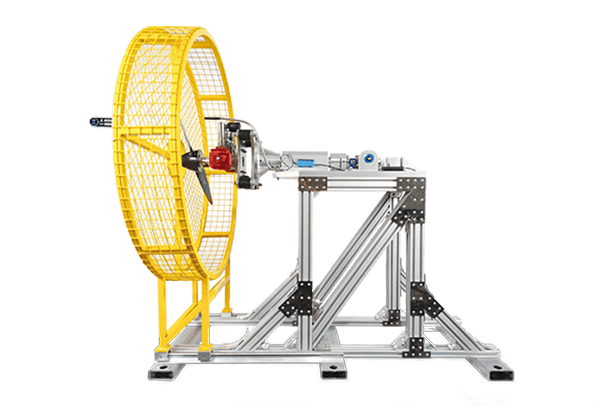Engine performance and reliability are critical factors in various industries, including automotive, aerospace, and power generation. To ensure optimal performance and efficiency, engines undergo rigorous testing and evaluation. One essential tool in this process is the engine test bench. In this comprehensive guide, we will delve into the world of engine test benches, exploring their purpose, components, testing methodologies, and the vital role they play in evaluating engine performance.

The engine test bench is a specialized apparatus designed to replicate real-world operating conditions for engines. It provides a controlled environment to assess an engine's performance, durability, emissions, and overall functionality. By simulating various operating parameters, such as speed, load, temperature, and pressure, test benches enable engineers to gather accurate data for analysis and optimization.
a) Dynamometer: The dynamometer is a key component of the test bench, responsible for applying loads to the engine and measuring its output. It allows precise control over torque, rotational speed, and power absorption, facilitating performance evaluation under different conditions.
b) Fuel and Air Supply Systems: The test bench incorporates specialized systems for supplying fuel and air to the engine. These systems ensure accurate metering of fuel and precise control over the air-to-fuel ratio, allowing engineers to evaluate fuel efficiency and emissions.
c) Cooling and Exhaust Systems: Engine test benches are equipped with cooling and exhaust systems to manage temperature and effectively remove exhaust gases. These systems replicate the cooling and exhaust processes of real-world applications, enabling engineers to assess engine performance under normal operating conditions.
Engine test benches support a wide range of testing methodologies, including:
a) Performance Testing: Performance tests assess an engine's power output, torque characteristics, and overall efficiency. This includes evaluating parameters such as brake horsepower, indicated horsepower, specific fuel consumption, and thermal efficiency.
b) Durability and Reliability Testing: Engine test benches subject engines to prolonged operation under extreme conditions to assess durability, reliability, and longevity. This involves running the engine for extended periods at high loads and varying speeds to simulate real-world usage scenarios.
c) Emissions Testing: With growing environmental concerns, emissions testing has become increasingly important. Engine test benches facilitate the measurement and analysis of exhaust emissions, allowing engineers to evaluate an engine's compliance with emission standards and develop strategies for emission reduction.
Engine test benches offer numerous advantages and find applications in various industries:
a) Efficient Development and Optimization: Test benches allow engineers to efficiently develop, optimize, and fine-tune engine designs before they are implemented in real-world applications. This reduces costs and time-to-market while ensuring improved performance and reliability.
b) Performance Evaluation and Benchmarking: Test benches provide a platform for performance evaluation, enabling manufacturers to benchmark their engines against competitors and industry standards. This allows for continuous improvement and innovation.
c) Research and Development: Engine test benches play a crucial role in research and development, facilitating studies on advanced engine technologies, alternative fuels, and emissions reduction strategies. This drives innovation and supports the development of more efficient and sustainable engines.
The engine test bench is an indispensable tool for evaluating engine performance, reliability, and efficiency. Through controlled testing conditions, engineers can collect accurate data, analyze engine behavior, and optimize performance. From performance testing and durability assessment to emissions analysis, test benches enable manufacturers to develop robust and efficient engines for various industries. By leveraging the power of engine test benches, the future of engine design and development looks promising, with continuous advancements in performance, reliability, and environmental sustainability.
Copyright:@2020-2021
Comments Please sign in or sign up to post.
0
0 of 500 characters used